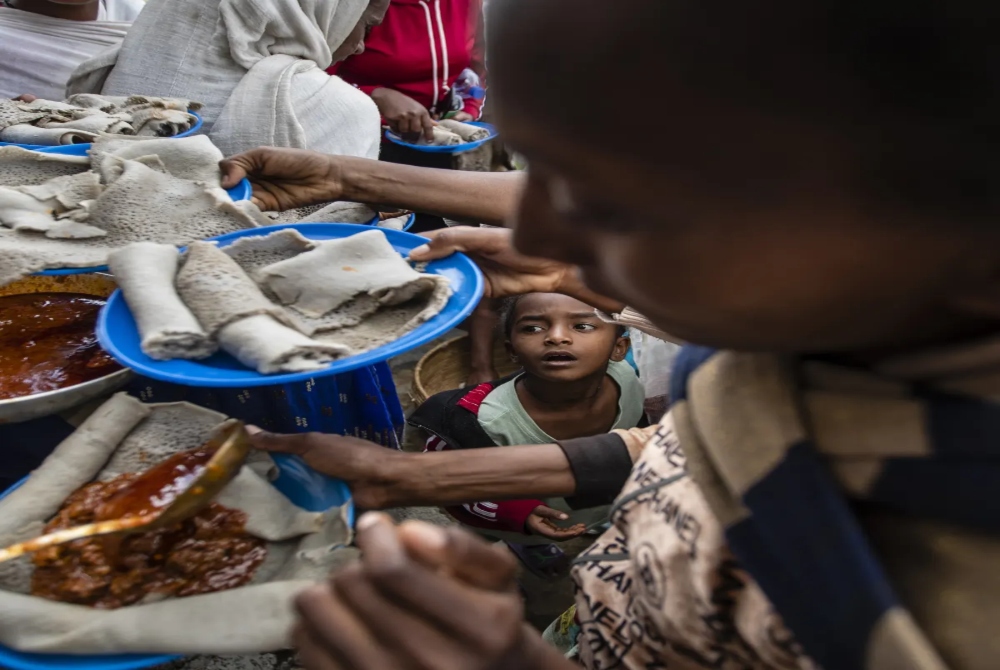After an eight-month hiatus, food aid distribution in Ethiopia's northern Tigray region has resumed, albeit with significant challenges hindering its effectiveness. Drought and the aftermath of a prolonged conflict have plunged Tigray into a deepening hunger crisis, marked by nearly 400 reported starvation deaths in the last six months alone.
Despite plans to reach 3.2 million people in need, only a fraction have received assistance due to logistical hurdles and funding shortages. The implementation of a new anti-theft system, prompted by widespread food theft allegations implicating both regional and federal authorities, has complicated the distribution process.
While efforts to establish accountability mechanisms have been underway, they have taken longer than expected, delaying aid delivery to vulnerable populations. Moreover, a funding shortfall of $2.6 billion threatens to undermine future relief efforts, raising concerns that the humanitarian response may falter in the coming months.
The protracted conflict in Tigray, which saw millions
displaced and vital infrastructure destroyed, has exacerbated the region's
vulnerability to food insecurity. Despite the signing of a peace agreement, the
suspension of food supplies by USAID and concurrent droughts have deepened the
crisis. Agricultural productivity has plummeted, forcing farmers into dire
circumstances and exacerbating the need for external assistance.
A new vulnerability-based targeting system, overseen by aid
agencies and employing GPS tracking on food trucks, aims to improve
distribution efficiency and transparency. However, its implementation has been
beset by challenges, including outdated beneficiary lists and limited warehouse
capacity. As a result, many in need have been left without adequate support,
exacerbating the severity of the crisis.
Local administrators, witnessing the devastating impact of
food shortages, express concerns about the increasing death toll and the
resilience of their communities. With no immediate end in sight to the crisis,
families like Abraha Gebrehiwot's are left grappling with the loss of
livelihoods and uncertain futures.
As the situation in Tigray remains precarious, urgent action
is required to avert a humanitarian catastrophe. While famine has not been
officially declared, the warning signs are ominous. Without swift intervention
and sustained support, the region faces the prospect of widespread suffering
and loss of life.










